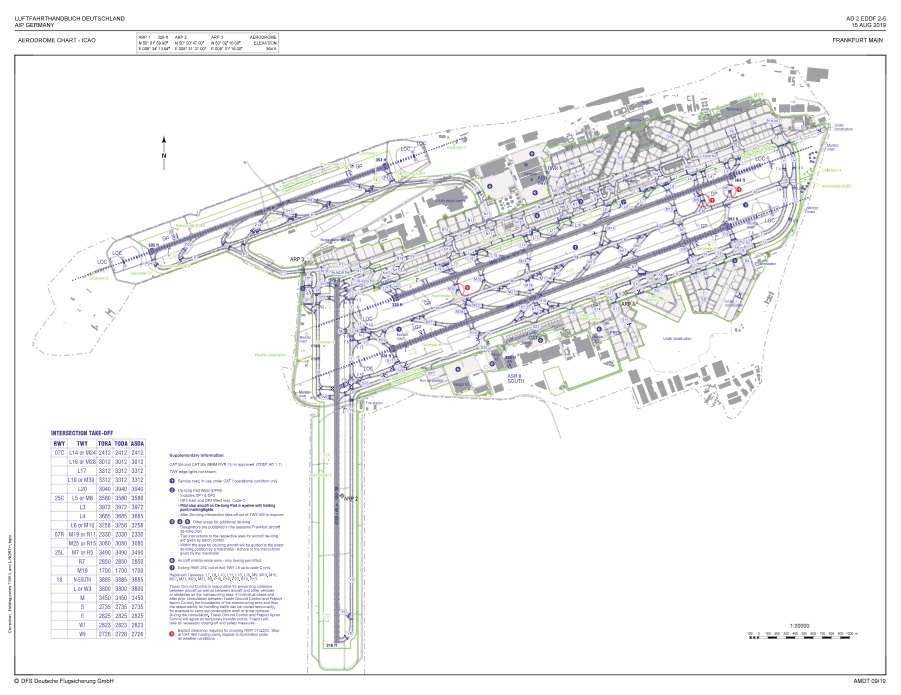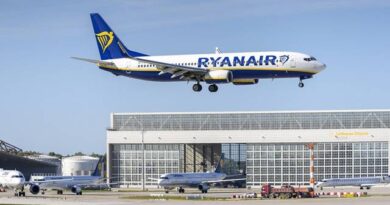Frankfurt Airport: A Pillar of European and Global Aviation
Frankfurt Airport (IATA: FRA, ICAO: EDDF) is not only Germany’s busiest airport but also a cornerstone of European and global aviation. Located in the financial heart of Europe, it serves as a vital international hub, enabling connectivity between continents, supporting trade, and fueling Germany’s economic growth.
Technical Overview of Frankfurt Airport
Frankfurt Airport is among the most advanced and expansive aviation facilities in the world. Here are its key technical specifications:
- Location: Frankfurt am Main, Hesse, Germany
- Runways: 4 fully operational runways allowing independent parallel operations
- Terminals: 2 active terminals, with Terminal 3 under phased opening since 2023
- Annual Passengers (2023): ~59 million (source: Fraport AG)
- Cargo Volume (2023): ~2 million metric tons – highest in Europe
- Flight Connections: Over 300 destinations in nearly 100 countries
- Main Hub Airline: Lufthansa and the Star Alliance network
Its state-of-the-art airside and landside operations ensure smooth handling of both passengers and cargo, making FRA a top-tier intercontinental hub.

Frankfurt’s Role in European and Global Aviation
Frankfurt Airport plays a crucial role in both intra-European and intercontinental air transport:
- Cargo Superhub: FRA is Europe’s largest freight airport, critical for supply chains in manufacturing, pharmaceuticals, and e-commerce.
- Long-Haul Connectivity: With a strong emphasis on North America, Asia, the Middle East, and Africa, FRA connects Germany to the world.
- Transfer Efficiency: Designed for fast, seamless transfers between short-haul and long-haul flights—especially within Lufthansa’s global network.
- Rail-Air Integration: Direct links to Germany’s ICE high-speed trains enhance intermodal travel and reduce the need for short-haul flights.
These factors make FRA not just a travel hub but a strategic mobility node for Europe’s future.
Economic Impact on Germany
Frankfurt Airport delivers immense benefits to the German economy:
- Employment Engine: Supports more than 80,000 direct and indirect jobs, making it one of Germany’s largest employers.
- Boosting Business Travel: Close to Frankfurt’s financial district and the European Central Bank, it’s essential for international business.
- Tourism Gateway: Connects millions of global tourists to German cities, heritage sites, universities, and medical services.
- Trade Facilitator: Enhances export competitiveness by enabling fast, secure, and global shipment of goods.
In short, FRA is a cornerstone of Germany’s economic infrastructure.
Frankfurt Airport and Its Main Competitors
Frankfurt Airport faces intense competition from several key European and Eurasian hubs. Here’s how it compares:
| Airport | Country | Key Strengths |
|---|---|---|
| Istanbul (IST) | Turkey | Mega-hub for Turkish Airlines, rapid growth, connects Europe, Asia, and Africa |
| London Heathrow (LHR) | UK | Strong transatlantic focus, British Airways hub |
| Paris CDG (CDG) | France | Air France-SkyTeam hub, African and Atlantic links |
| Amsterdam Schiphol (AMS) | Netherlands | KLM hub, efficient transfers, wide European reach |
| Munich (MUC) | Germany | Lufthansa’s secondary hub, highly rated for passenger experience |
Among these, Istanbul Airport (IST) has emerged as a formidable competitor, handling 76 million passengers in 2023, surpassing FRA’s traffic. Its ultra-modern infrastructure, aggressive route expansion by Turkish Airlines, and lower cost structure have made IST a top contender for connecting Asia, Africa, and Europe.
Sustainability and the Future of FRA
Frankfurt Airport is also investing in a greener aviation future:
- Net Zero by 2045: Fraport’s sustainability roadmap focuses on energy-efficient operations and renewable energy use.
- Electric Ground Support: Transitioning to electric buses, tugs, and GSE equipment.
- Terminal 3 Development: The new terminal integrates green building materials and climate-friendly technologies.
As demand for air travel rebounds and environmental pressure rises, Frankfurt is gearing up to maintain its leadership with eco-conscious infrastructure and innovation.
Conclusion: Frankfurt Airport’s Global Significance
Frankfurt Airport is much more than a transportation hub. It is a symbol of Germany’s global connectivity, innovation, and economic strength. While it faces growing competition from airports like Istanbul, Paris, and Amsterdam, FRA’s powerful combination of infrastructure, cargo capacity, central location, and alliance partnerships ensures its continued relevance as a top global airport.
Recommended Article: Istanbul vs. Atlanta: A Mega-Airport Comparison in the Era of Triple Parallel Runway Operations


